Manchester Literature Festival celebrated the wonder of nature at HOME with Carol Ann Duffy, John Sampson and a collective worship of music and words.
Before the lights dropped and the pair emerged, the theatre was abuzz with eccentrically clad fans thumbing through pages of poetry and chattering about Duffy’s latest compilation. Earth Prayers: Encounters in Poetry with the Natural World is compiled of work from poets including Lucille Clifton and Kathleen Jamie. Duffy’s selection intends to illustrate the importance of eco-consciousness and explore poetry’s relationship with it.
A man of a great many talents, Sampson is most frequently found composing music or playing woodwind instruments. His ceremonious horn blowing signalled the beginning of the show – a sound so bold it gave Duffy a start as she jumped at the first note. Having readied the crowd, Sampson grandly announced one word: “Hello!” before introducing his friend, Duffy.
While Duffy took a seat, Sampson entertained with an array of traditional woodwind pieces from recorders to crumhorns. As he did, he made witty quips to amuse the audience including one on King Henry VIII: “He was a serial killer but he found time to write lots of interesting music.
“Especially when he was happy because he was about to get married – to his brother’s wife.”
The audience giggled, and Duffy grinned as she looked at Sampson fondly, a look reserved for a friend whose sentences you can finish but whose wins still bring joy.
The following 45 minutes offered music and poetry intuitively working together to create a unique experience which invited the auditorium to learn, reflect and imagine.
Duffy read poetry from her 2011 collection The Bees and later pieces from Alice Oswald and Seamus Heaney whom she revealed were her two favourite poets. She was stoic, at times austere, and delivered the words with a haunting drawl reminiscent of a Priest’s sermon.
She stood still at the podium and read each line with a seriousness that suggested she held a world of unanswerable questions within her.
Duffy traverses ideas of womanhood and notions of mythology throughout her work, and at this event, she weaved her signature themes with the focus of her new compilation. The wild and fragile power of femininity proved comparable to the natural world.
The Woman in the Moon imagines a woman with almighty knowledge musing on the destruction she sees on Earth. The question: “What have you done to the world?” at the end of the piece urged listeners to consider the starkness of human impact on the planet.
Later, Duffy read The Human Bee which uses the bee as a metaphor for the role of women in society. They both give abundantly, provide beauty and produce life before finding they no longer serve a purpose.
Duffy read: “The ovary would become the fruit, the ovule the seed, fertilised by my golden touch, my Midas dust.”
And the poem ends: “But I could not fly and I made no honey.”
At the end of Lessons in the Orchard, Duffy spoke the line: “We fill, and fill, and fill,” her voice growing tiresome as she did. The final word she spoke with an emptiness. A shiver of irony passed through the room in the silence that followed.
Sampson’s jovial energy elevated the theatre once again as he recalled an encounter with a treasure of Scottish literature, Norman MacCaig. According to Sampson, he ran into the enigmatic poet on the street and while chatting, MacCaig took two cigarettes from his pack, lit them and told Sampson: “Ah, one for each lung.”
As the show progressed, it was clear to see the synchronicity of Duffy and Sampson’s work. Sampson’s lilting intonation and warm tones contrasted with Duffy’s solemnity. Sampson was open while Duffy maintained a distance between herself and the listener.
But it was through her words that Duffy made herself vulnerable. In a poem that recounts her daughter’s brief move home during the Covid pandemic, Duffy recited: “I was a mother again.”
A touching reading of Hillsborough was accompanied by Sampson. Duffy spoke fondly of Liverpool, a city she lived in for many years. She explained she spent two decades writing the poem, beginning when the disaster struck and ending when loved ones received what she called “some kind of justice”.
To end, Sampson delivered a beautiful rendition of Leonard Cohen’s Hallelujah by trumpet. He gestured with a wave of an arm for the audience to join him by singing the chorus, which they did gladly. Many wept and dabbed at their eyes as Duffy watched on.
Before leaving the stage, the old friends stood together and took a humble bow, shared a smile, and headed off having inspired and moved the room on a Saturday afternoon in Manchester’s heart of arts and culture.
Feature image credit: Char L Reck
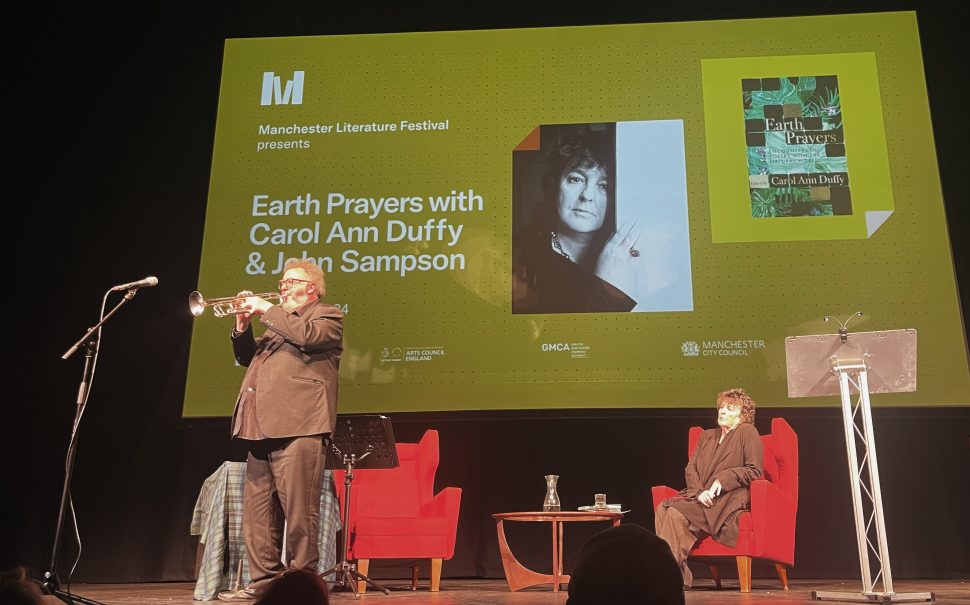
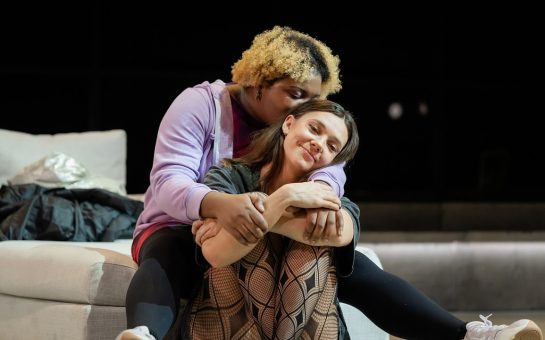
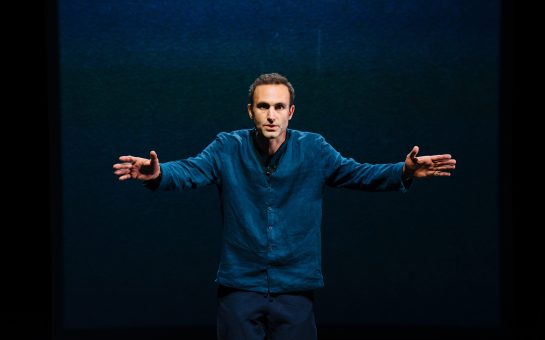
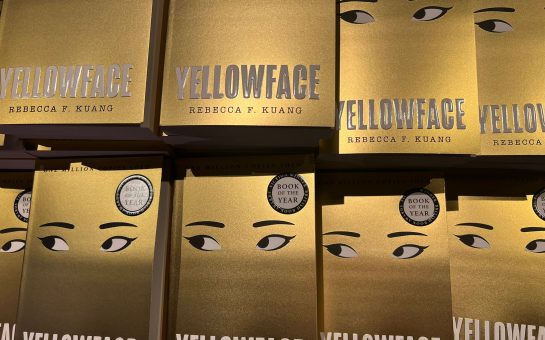
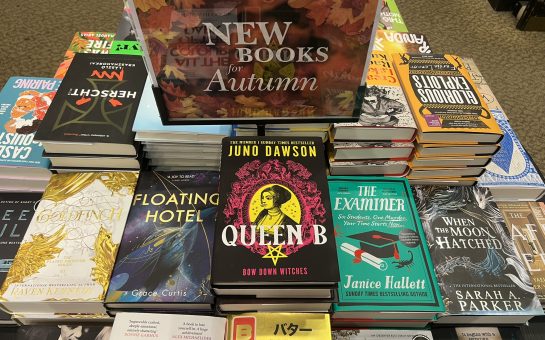
Join the discussion
It sounds like a wonderful way to spend a Saturday afternoon wish I could have been there.